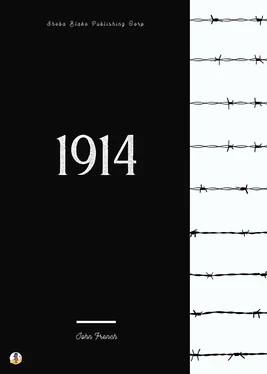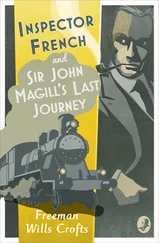John French
1914
First published by Sheba Blake Publishing Corp. 2021
Copyright © 2021 by John French
All rights reserved. No part of this publication may be reproduced, stored or transmitted in any form or by any means, electronic, mechanical, photocopying, recording, scanning, or otherwise without written permission from the publisher. It is illegal to copy this book, post it to a website, or distribute it by any other means without permission.
John French asserts the moral right to be identified as the author of this work.
Sheba Blake Publishing Corp.
2288 Crossrail Dr
Atlanta, GA 30349
support@shebablake.com
First edition
Cover art by Sheba Blake
Editing by Sheba Blake
This book was professionally typeset on Reedsy
Find out more at reedsy.com

Le Maréchal FRENCH commandait en Chef l’Armée Britannique au début de la Guerre.
Comme on le sait, les allemands ont cherché en 1914 à profiter de leur supériorité numérique et de l’écrasante puissance de leur armement, pour mettre hors de cause les Armées Alliées d’Occident, par une manoeuvre enveloppante, aussi rapide que possible.
Après avoir cherché en vain la décision à la MARNE, puis à l’AISNE et à la SOMME, ils la poursuivent successivement à ARRAS, sur l’YSER et à YPRES.
À mesure que dans cette course à la mer, le terrain disponible se restreint devant eux, les coups se précipitent et se répètent plus violents, les réserves s’engagent, de nouveaux Corps d’Armée entrent en ligne nombreux et intacts. La reddition d’ANVERS assure d’ailleurs à l’ennemi d’importantes disponibilités.
Mais déjà l’Armée Belge, appuyée de troupes françaises, arrête les allemands sur l’YSER, de NIEUPORT à DIXMUDE. Après avoir pris part aux actions de l’AISNE, l’Armée Britannique a été transportée dans le Nord. C’est ainsi qu’elle s’engage progressivement de la BASSÉE à YPRES, s’opposant partout à l’invasion.
Bref, les allemands, après avoir vainement développé leurs efforts de la Mer à la LYS, dès le 15 octobre, sont dans l’obligation, à la fin du mois, de vaincre à YPRES, ou bien leur manoeuvre échoue définitivement, leur offensive expire en Occident et la Coalition reste debout.
Ainsi sont-ils amenés, sur ce point d’YPRES, dans une lutte acharnée, à concentrer leurs moyens, une forte artillerie lourde largement approvisionée, renforcée de minenwerfers, de corps d’armée nombreux et renouvelés.
Quant aux Alliés, ils sont réduits à recevoir le choc avec des effectifs restreints, des munitions comptées et rares, une faible artillerie lourde. Toute relève leur est interdite par la pénurie de troupes, quelle que soit la durée de la bataille. Pour ne citer qu’un exemple, le premier corps britannique reste engagé du 20 octobre au 15 novembre—au milieu des plus violentes attaques et malgré de formidables pertes.
Mais à cette dernière date la bataille était gagnée. Les Alliés avaient infligé un retentissant échec à l’ennemi: ils avaient sauvé les communications de la Manche et par là fixé le sort et l’avenir de la Coalition.
Si l’union étroite du Commandement Allié et la valeur des troupes ont permis ces glorieux résultats, c’est que le Maréchal FRENCH a déployé la plus entière droiture, la plus complète confiance, la plus grande énergie: résolu à se faire passer sur le corps plutôt qu’à reculer.
La Grande-Bretagne avait trouvé en lui un grand soldat. Il avait maintenu ses troupes à la hauteur de celles de WELLINGTON.
Avec l’émotion d’un souvenir profond et toujours vivant, je salue le vaillant compagnon d’armes des rudes journées et les glorieux drapeaux Britanniques de la Bataille d’YPRES.
Maréchal de France.

For years past I had regarded a general war in Europe as an eventual certainty. The experience which I gained during the seven or eight years spent as a member of the Committee of Imperial Defence, and my three years tenure of the Office of Chief of the General Staff, greatly strengthened this conviction.
For reasons which it is unnecessary to enter upon, I resigned my position as Chief of the Staff in April, 1914, and from that time I temporarily lost touch with the European situation as it was officially represented and appreciated.
I remember spending a week in June of that year in Paris, and when passing through Dover on my return, my old friend, Jimmie Watson (Colonel Watson, late of the 60th Rifles, A.D.C. to the Khedive of Egypt), looked into my carriage window and told me of the murder of the Archduke Francis Ferdinand and his Consort. I cannot say that I actually regarded this tragedy as being the prelude which should lead ultimately to a great European convulsion, but in my own mind, and in view of my past experience, it created a feeling of unrest within me and an instinctive foreboding of evil. Then came a few weeks of the calm which heralded the storm—a calm under cover of which Germany was vigorously preparing for “the day.”
One afternoon, late in July, I was the guest at lunch of the German Ambassador, Prince Lichnowski. It was a small party, comprising, to the best of my recollection, only Princess Henry of Pless, Lady Cunard, Lord Kitchener, His Excellency and myself. The first idea I got of the storm which was brewing came from a short conversation which I had with the Ambassador in a corner of the room after lunch. He was very unhappy and perturbed, and he plainly told me that he feared all Europe would be in a blaze before we were a fortnight older. His feeling was prophetic. His surprising candour foreshadowed the moral courage with which Prince Lichnowski subsequently issued his famous apologia.
On July 28th Austria-Hungary declared war on Serbia. The military preparations of the Dual Monarchy inevitably led to a partial mobilisation by Russia against Austria, whereupon the German Emperor proclaimed the “Kriegsgefahrszustand” on July 31st, following this up by declaring war against Russia on August 1st. On August 2nd German troops entered Luxemburg and, without declaration of war, violated French territory. Great Britain declared war against Germany on August 4th and against Austria on August 12th, France having broken off relations with Austria two days earlier.
On Thursday, July 30th, I was sent for by the Chief of the Imperial General Staff, and was given private intimation that, if an expeditionary force were sent to France, I was to command it. On leaving the room I found some well-known newspaper correspondents in the passage. I talked a little with them and found that great doubt existed in their minds as to whether this country would support France by force of arms. This doubt was certainly shared by many.
I remember well that on the morning of Saturday, August 1st, the day upon which Germany declared war on Russia, and it was known that the breaking out of hostilities between Germany and France was only a question of hours, I received a visit from the Vicomte de la Panouse, the French Military Attaché in London. He told me that the Ambassador was much disheartened in mind by these doubts and fears. We talked matters over, and he came to dinner with me that night. Personally, I felt perfectly sure that so long as Mr. Asquith remained Prime Minister, and Lord Haldane, Sir Edward Grey and Mr. Winston Churchill continued to be members of the Cabinet, their voices would guide the destinies of the British Empire, and that we should remain true to our friendly understanding with the Entente Powers. As the result of the long conversation I had with the Vicomte de la Panouse, I think I was successful in causing this conviction to prevail at the French Embassy.
Читать дальше














